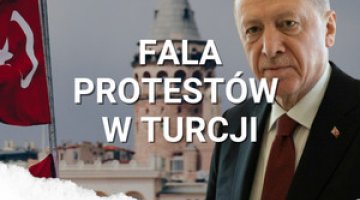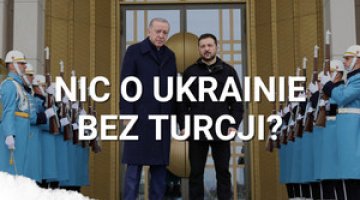The USA and Turkey reach a compromise on the Middle East
On 4 June, Turkey’s Minister of Foreign Affairs Mevlüt Çavuşoğlu and the US Secretary of State Mike Pompeo held talks in Washington. According to the Turkish side, a compromise has been reached as regards one of the greatest controversies between the two countries: the Syrian Kurd People’s Protection Units (YPG) supported by the USA are to leave the city of Manbij and the areas west of the Euphrates (they are to be controlled by joint US-Turkish patrols) and to return the heavy equipment they had received from the USA to combat Islamic State (IS). The Department of State in general terms confirmed the arrangements. The arrangements were also accepted by the local Kurdish-Arab Military Council of Manbij. However, no official reaction has been heard from the political wing of the Syrian Kurds, the Democratic Union Party (PYD), and Kurdistan Workers’ Party (PKK) linked to it.
The Arab city of Manbij in Syria was occupied by the YPG with military support from the USA in August 2016 during an offensive against IS. Turkey viewed the military activity of Syrian Kurds as setting up a terrorist (dominated by PKK) para-state along Turkey’s southern border. Actions taken by the YPG provoked the Turkish Operation Euphrates Shield (military intervention in Syria in August 2016). It was aimed at blocking the movement of Syrian Kurds in the western direction. Then the exclave of the PYD in Afrin was liquidated by military means (Operation Olive Branch, January – March 2018). Ankara is continuing its promises to liquidate the sanctuaries controlled by the PYD and PKK in Syria and Iraq.
Commentary
- The US support for Syrian Kurds and the protection offered in the USA to Fethullah Gülen (a religious and political leader whom Ankara has accused of plotting the failed coup in July 2016) are the main causes of the crisis in US-Turkish relations. From Turkey’s viewpoint, these are manifestations of Washington’s support for forces targeted against the territorial integrity of the state and law and order inside it. In turn, for Washington, Syrian Kurds were in fact the only reliable partner in the struggle against Islamic State and the sole political and military power in Syria to effectively co-operate with. Withdrawing support for the PYD/YPG would be an important step that would reduce the tension in relations with Turkey and give hope for slowing down its gradual drift towards Moscow. The fact that the compromise was announced during the election campaign in Turkey (the parliamentary and presidential elections will take place on 24 June) should be interpreted as strengthening the governing AKP party and President Recep Tayyip Erdoğan.
- The time schedule for implementing the arrangements and the Kurds’ stance remain open questions. The loss of the US umbrella and leaving Manbij (and as a consequence other territories dominated by Arabs) for Kurds would mean losing the role of one of the key players in the Syrian conflict and a further marginalisation of the Kurdish issue in the region. There is a risk that this situation will lead to a reorientation of Syrian Kurds towards co-operation with the Assad regime (such talks have reportedly already begun) and with Iran and Russia. The temporary consequences would include a redefinition of the balance of powers in the conflict, an escalation of the conflict (the increased likelihood of new Turkish actions targeted against the PYD and PKK) and the weakening of the US influence in the Syrian conflict and the Middle Eastern crisis. The fact that the compromise has been reached is consistent with President Donald Trump’s declarations concerning the need to focus on the struggle with IS. Nevertheless, this may adversely affect US interests in the region, given the increasing tension between the USA and Israel on one side, and with Iran on the other.
Krzysztof Strachota, additional research by Mariusz Marszewski




